Blog > 10 Effective Ways to Improve Your Sleep Hygiene 2024
Blog > 10 Effective Ways to Improve Your Sleep Hygiene 2024
Sleep hygiene is important for your health. It combines a plethora of habits so you can rest better. Learn how you can improve your sleep hygiene.
Surprisingly, contrary to its name, sleep hygiene is not only about cleanliness. In fact, it refers to a healthy lifestyle that promotes a better sleep experience Bet you didn’t see that coming! Ignoring sleep hygiene can certainly impact your sleep quality and cause tiredness at odd times. It may create unnecessary stress in your life – which is of course the last thing you need! A Sleep Health Foundation survey statistics revealed serious impact of low sleep quality on the lifestyle and routine activities of Americans. Around 17% people missed work because they fell asleep on their job and 29% of people made errors at workplace due to sleep problems. Pretty bad, huh? Thus, no matter you are a home worker or have a fixed office routine, your body demands a good night’s rest. Your priority should be to enjoy a stress-free and therapeutic snooze every night. In this blog, we will discuss a sleep hygiene checklist to highlight important lifestyle practices and their benefits for slumber improvement. Without further ado, we will start with a brief intro for sleep hygiene and why is it important for your body.
The word ‘hygiene’ often brings up images of cleanliness, such as taking a bath, washing hands, or keeping your environment spick and span. However, sleep hygiene is a unique concept. Sleep hygiene relates to the practices, environmental factors, and sleeping habits that overall impact the convenience and quality of your sleep. Recommendations about sleep hygiene often depends on your personal needs and routines. Your habits and practices define how well you sleep on regular basis. While you may put all your efforts in choosing the perfect mattress for you so you can enjoy a good night’s rest, unfortunately, it may not be enough. Sometimes, you have to alter your lifestyle a bit to ensure quality sleep experience. That’s what sleep hygiene is all about!
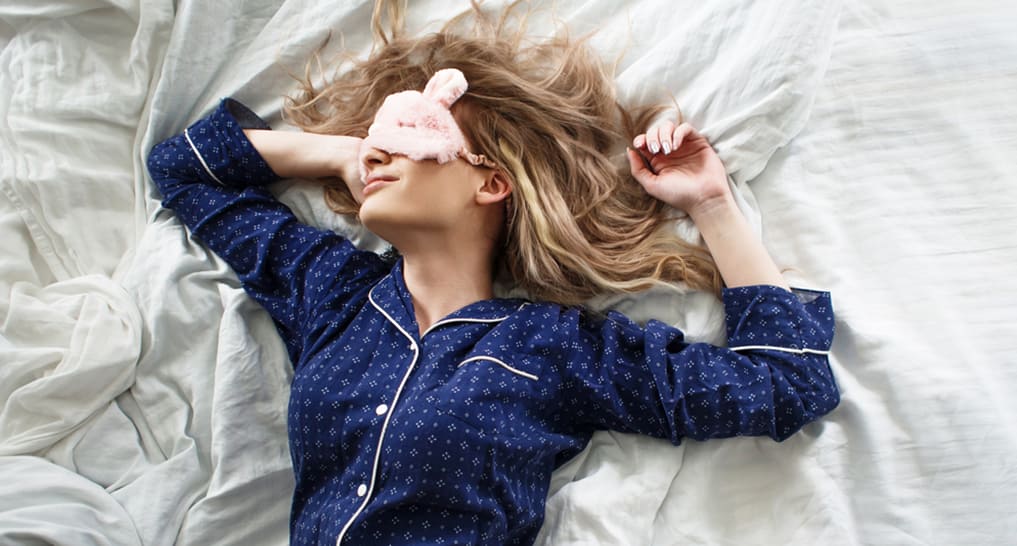
Healthy sleeping leads to happy life!
Sleep is a vital factor that affects your lifestyle and overall well-being. There are multiple ways how you can enhance your sleep quality, let’s discuss further about your sleep hygiene checklist.
Once you start incorporating various healthy habits in your lifestyle, you’ll gradually notice a significant change in your sleep quality. Your mornings will be more refreshing and all the persistent tiredness will be finally gone. We have prepared a sleep hygiene checklist for you. See if you follow any (or all) of the below-mentioned practices and experience how it changes your life.
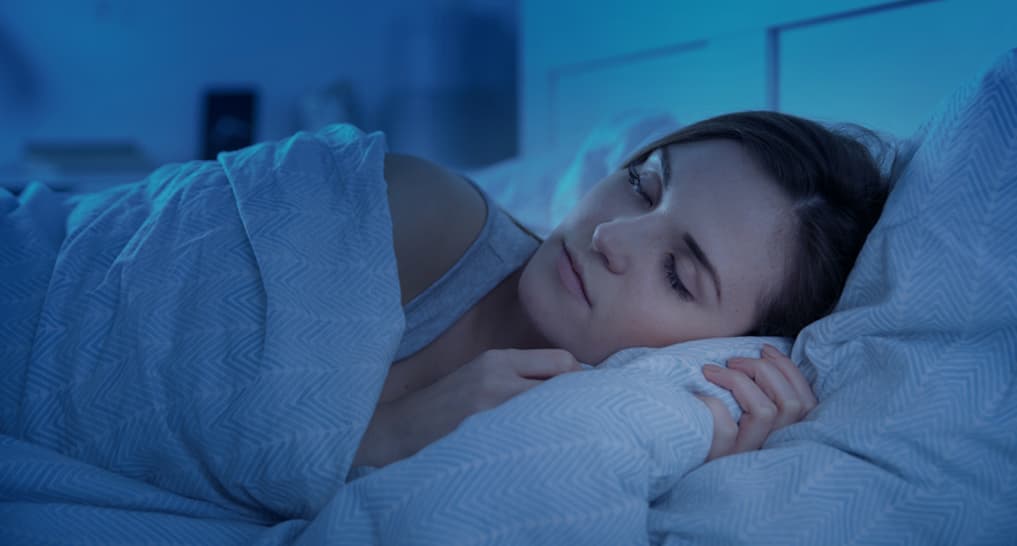
Limit the light in your bedroom
According to research, if your bedroom or any place where you hit the sack, have continuous exposure to light during slumber hours, it can adversely affect your sleep pattern. A hormone called ‘melatonin’ puts you to sleep. Darkness helps your brain to release melatonin, inducing sleep and reducing wakefulness. However, in the presence of bright light, the hormone fails to work properly. As a result, you experience difficulty in falling asleep or staying asleep. Here are some tips to achieve a dark sleep environment and enjoy a cozy snooze: If your room has a window and rays enter from a source outside, you should get dim-out curtains, blinds, or any opaque fabric to diminish the light exposure.
In case it’s not practical for you to block out all the light due to security reasons, you can always opt for a sleep mask to cover your eyes.
Some people keep a lamp in their bedroom. Instead, choose a suitable night light. They are useful in lightning up the room in certain corners and prevent the entire space from brightness. Scientists agree your room should only be as dark as you can handle. You don’t want a pitch black surrounding as there’s a risk of falling or tripping over if you wake up during the night. Faint light rays won’t mess with your sleep quality!

Maintain healthy morning routines
Relating to the point mentioned earlier, if you sleep in during the day or get limited to no exposure to sunlight in the morning or noon, your circadian rhythm gets altered. Because of the changes in your sleep pattern, your body will be accustomed to sleeping during the day and being awake after dark. Studies show a relation between limited exposure to illumination and increased anxiety levels among human subjects. In regions where the climate is usually cold and the residents do not get enough sunlight, people are more prone to depression and stress than the places with a warm climate. Hence, the more stressed you are, the more problems you’ll face falling asleep. To ensure proper sleep hygiene, it is essential to have a healthy morning routine. Following are some beneficial morning rituals you can incorporate in your life to improve how you slumber every night.
Thus, evidently, sunlight exposure can do wonders to your body in more than one ways! Check out the morning routines of the world’s most successful people. Pretty sure you’ll love Oprah’s no-alarm rule!
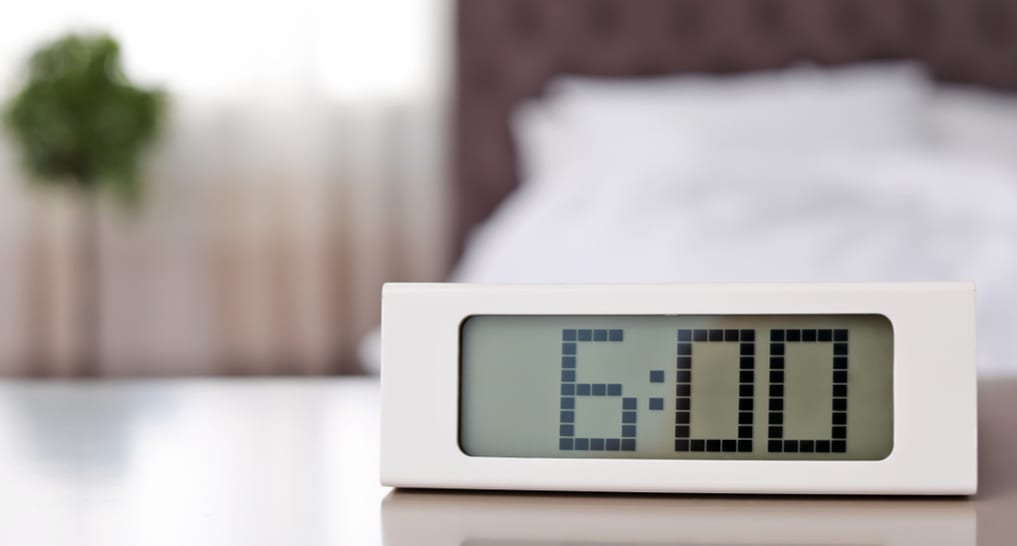
Solid 8 hour sleep is vital
You must be familiar with the daily sleep hour requirements for an average adult. Every adult should at least get a solid eight hour rest each night. Your brain needs to pass through multiple stages of sleep, including the REM sleep or deep sleep phase, each lasting for about 90-100 minutes. The cycle repeats throughout the night and you get an eight-hour sleep. But, if you fail to have a proper deep sleep experience, as a result, you’ll wake up tired and might be cranky for the most part of your day. Eventually, you may even be in a serious sleep debt! Sleeping needs often vary from one person to another. Let’s discuss some of the factors that influence your sleeping patterns.
National Sleep Foundation conducted a study and revealed that, most of the American’s rate their overall sleep quality ‘average’ or ‘poor.’ One of the main reasons behind these results is the inability to rest for the required number of hours daily. So, make it a priority to get the much needed slumber your body demands to maintain a proper sleep habits and hygiene checklist.
4. Avoid long naps mid-day.
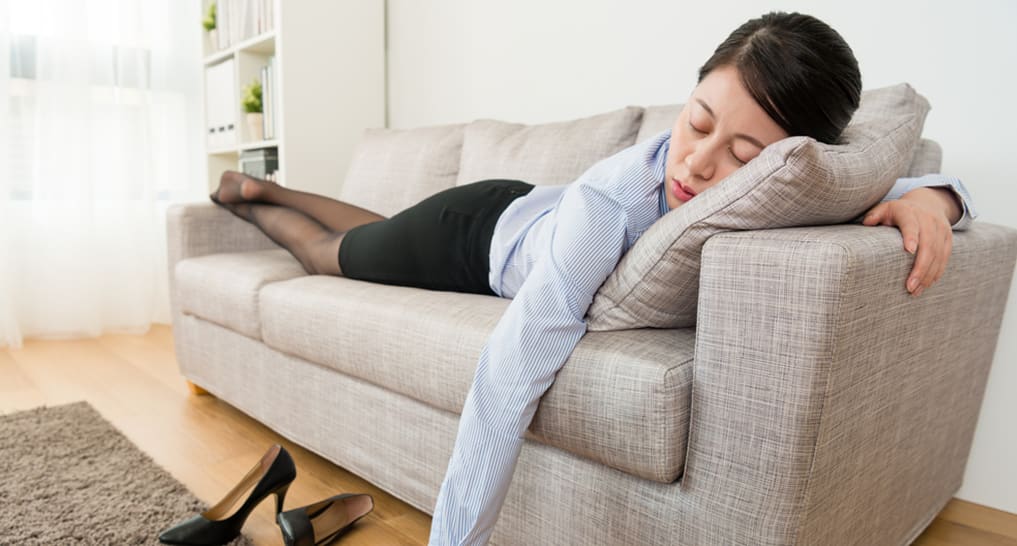
Limit your nap time during the day
Once in a while, if you want to catch up on your z’s for a few minutes, a short nap is completely fine – in some cases, it is even recommended! But habitual napping for long hours on daily basis can backfire and cause sleeplessness at night. Ultimately, you might become an insomniac. For people with insomnia or any sleeplessness disorder, it is vital to avoid taking naps mid-day. However, if you really are in need to get of a short break, there’s a way you can make it work. By limiting daytime naps to around 30 minutes, you can experience an improvement in the mood, increase the alertness, and enhance your work performance. For example, if you have a 9 to 5 work routine, you may take a nap during the break hour for 20 to 30 minutes. Then notice how well you perform at work! It’s important to remember though, that napping does not make up for sleep debt. This means if you regularly rest at night for less than seven or eight hours, you can’t adjust that loss through short naps. Your body will still need a good night’s sleep.

High caffeine intake leads to lack of sleep
Approximately 90% of the Americans consume caffeine 2 to 4 times each day. A single cup of black coffee can boost your energy, performance, focus, and metabolism. But, on the other hand, this stimulant can seriously mess with your sleep hygiene strategies checklist. Increased caffeine consumption during morning or noon hours can reduce sleepiness and make you unnaturally active at odd times. Caffeine stays in your body for around five hours and within 30 minutes, you’ll start experiencing stimulant body response. Therefore, experts suggest to not drink coffee anytime before six hours of going to sleep, as it may increase alertness and make it difficult to fall asleep at night.In addition, caffeine causes frequent urination which may wake you up during the night, resulting in poor sleep quality. However if you love drinking coffee, you might want to try decaffeinated option. Or, you can limit the intake to 300mg per day, that equals to three small cups.

Chuck out the screen devices from your bedroom
Research reveals that, ninety percent of people in America use an electronic device during the hour before sleeping. Most of the children play games on their tablets and teenagers often spend their hours, scrolling through social media. You may not acknowledge the extent to which these electronic devices can disrupt your sleeping patterns. Your body has an internal clock, known as circadian rhythm, when you spend bedtime hours on netflix and social media, your body clock is delayed. In return, this delay suppresses activation of sleep hormone, melatonin. For a good night’s sleep, it’s highly important to avoid usage of any electronic or digital device. Indulge this rule for your family by setting a time at which all electronic devices would be turned off. As soon as your screen interaction would be minimum before bed, your sleep quality will evolve.
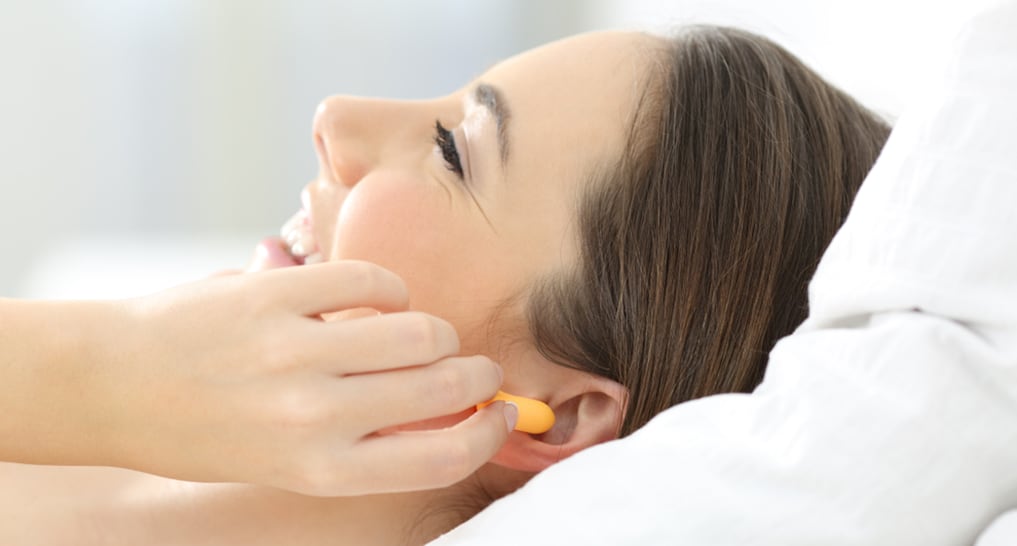
Sleep surroundings should be noise-free
Without a doubt, this one’s a no-brainer. You can’t snooze properly if the surroundings are loud and noisy. You’ll have an interrupted and restless slumber resulting in tiresome mornings. Using a white noise machine/app is one of the most effective ways to fall asleep. A study revealed white noise serve as a medication to help people sleep quickly by drowning out all the outside noises. It blocks away all the other sounds, putting the environment at peace. You might know that white color is a combination of every color, in the same way, white noise is a term for static frequencies combined together to create a soothing, relaxing sound. Following are three basic types of white noises commonly found in machines and apps.:
For instance, if you are on a flight and you need to catch up on your z’s, you can plug in your headphones and turn on your white noise app. You may choose any of the above sounds and drown the worldly disturbances to get a good night’s sleep.

Eating a heavy dinner may cause digestion issues
Research suggests that, people who eat right before sleeping are likely to gain weight with this habit. In other terms, the late night snack fest leads to obesity. The food you consume before going to bed does not get digested (or used) properly and deposits on your body during the night. The metabolic activity in your body slows down when you’re about to sleep, putting a stop to physiological processes. But the most important fact is that improper digestion causes bloating or gases, which is immensely painful! You do not want to spend your night squirming in your bed in pain when instead, you should be getting a relaxing rest. Additionally, late night binge eating causes Gastroesophageal Reflux Disease (GERD), commonly called acid reflux, found in almost 40% of the Americans. You may experience extreme discomfort during the night due to this disease. To avoid all these digestion issues, dieticians recommend to not eat anything almost three hours before bedtime. Avoiding your eating impulses late night can significantly improve your signs of poor sleep hygiene and help you enjoy a deep slumber.

Stress-free snooze improves sleep hygiene
Stress can negatively impact your life in many ways, but specially, it affects your overall sleep quality. For instance, if you are stressed about some upcoming deadlines, or finding a new job, it will be hard to stay relaxed and catch up on your z’s. However, continuous stress disturbs your sleep hygiene and affects your mental health. Following are some tricks to help you put your mind at ease before bedtime and maintain good sleep hygiene.
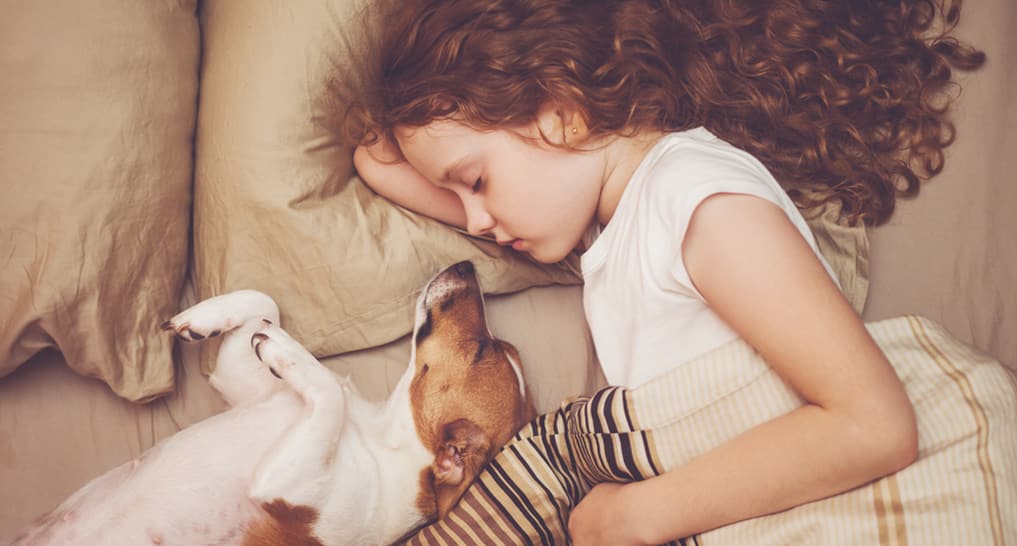
Bedroom environment should promote better sleep
Your bedroom environment plays an influential part in a good night’s sleep. Certain factors that contribute to promoting a suitable sleep hygiene such as the lights, temperature, external noise, and furniture of your bedroom. Be mindful of the following factors:
The checklist for better sleep hygiene might not work at all if you don’t have a super comfortable and supportive mattress. You spend almost one-third of your life resting, which is a lot of time! And thus, it is integral to invest in a mattress offering value and helping you rest better each night. You might want to consider a variety of features to assess which bed suits your needs. For example, if you sleep with a partner, which positions you sleep in, what mattress category is your favorite, what is your budget, if you suffer from body pains, etc. Depending on your needs you can find your dream mattress for a restful sleep. Having an excellent sleep hygiene regimen can significantly enhance how you snooze every night. By following these healthy lifestyle practices, you will notice a change in your overall well being. Let’s see how a sleep hygiene regimen improves your physical and mental health.
As mentioned earlier, an eight-hour sleep schedule is vital for wellness. A lot of your health issues can be fixed by a good night’s rest. Being continuously in sleep debt can create havoc inside your body, leading to chronic diseases and complications. Thus, if nothing else, make it a priority to follow a rigid sleep schedule to promote sleep hygiene and improved mental health. Involve your family members in these strategies, as they are not only beneficial for adults but also for kids. Following are just a few personal sleep hygiene benefits and how they are crucial for you.

Sleep hygiene leads to better mornings
Proper sleep hygiene decreases the risk of heart diseases and fights weight increase. You can even avoid the harrows of cancer by being mindful of these habits. Many patients of Alzheimer’s and depression experience happiness and a enjoy a better rest at night by following a proper routine before bedtime. That is why you should know how to practice a good sleep hygiene. In short, it’s integral you make sleep hygiene regimens a part of your life. For better sleep hygiene checklist we prepared for you will help you make note of the habits where you’re lacking. Incorporate these lifestyle changes and promote self-care for yourself and the loved ones around you.
11 Surprising Health Benefits of Sleep, Health.com, Available from: https://www.health.com/health/gallery/0,,20459221,00.html?
What Are the Best Practices to Help You Sleep Well Every Night, Alaska Sleep, Available from: 17 Proven Tips to Sleep Better at Night, Healthline, Available from: https://www.healthline.com/nutrition/17-tips-to-sleep-better
The Importance of Sleep Hygiene, Sleepscore, Available from: https://www.sleepscore.com/the-importance-of-sleep-hygiene/
Twelve Simple Tips to Improve your Sleep, Healthy Sleep, Available from:
Sleep Hygiene, Wikipedia, Available from: https://en.wikipedia.org/wiki/Sleep_hygiene
Sleep Hygiene, Huffington Post, Available from: https://www.huffingtonpost.com/topic/sleep-hygiene
Morning daylight exposure tied to a good night’s sleep, Reuters, Available from: https://www.reuters.com/article/us-health-sleep-daylight/morning-daylight-exposure-tied-to-a-good-nights-sleep-idUSKCN18E23E
9 tips for maximizing your sleep environment, Alaska Sleep, Available from:
7 essential oils for relaxation and better sleep, Sleep Doctor, Available from: https://www.thesleepdoctor.com/2018/06/12/7-essential-oils-for-relaxation-and-better-sleep/
Decreased daytime illumination leads to anxiety-like behaviors and HPA axis dysregulation in the diurnal grass rat, Behavioral Brain Research, Available from: https://www.ncbi.nlm.nih.gov/pmc/articles/PMC4724441/
How Long Does Caffeine Stay in your System, Healthline, Available from: https://www.healthline.com/health/how-long-does-caffeine-last#takeaway
How Electronics May Stimulate you Before Bed, Sleep Foundation, Available from: https://www.sleepfoundation.org/sleep-topics/why-electronics-may-stimulate-you-bed
Eating Large Meals Before Bed, Livestrong, Available from: https://www.livestrong.com/article/437254-eating-large-meals-before-bed/
To Sleep Better, Stay Cool and Cut Clutter, Health.US News, Available from: https://health.usnews.com/health-news/health-wellness/articles/2015-12-30/to-sleep-better-stay-cool-and-cut-clutter
Sleep Problems in Children, WebMD, Available from: https://www.webmd.com/sleep-disorders/guide/children-sleep-problems
Sleep duration and all-cause mortality: a systematic review and meta-analysis of prospective studies, Sleep. Available from: https://warwick.ac.uk/newsandevents/pressreleases/short_sleep_increases/

 Showrooms
Showrooms
Meet The Author:
Shanir Kol
Shanir Kol, founder and CEO of SleePare, pioneered the “Try and Buy” model in eCommerce, enhancing mattress shopping by combining in-store trials with online purchases. Launching in 1999, his company focuses on customer satisfaction and eco-friendly practices, aiming to minimize mattress waste and expand sustainably.